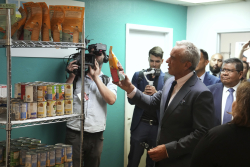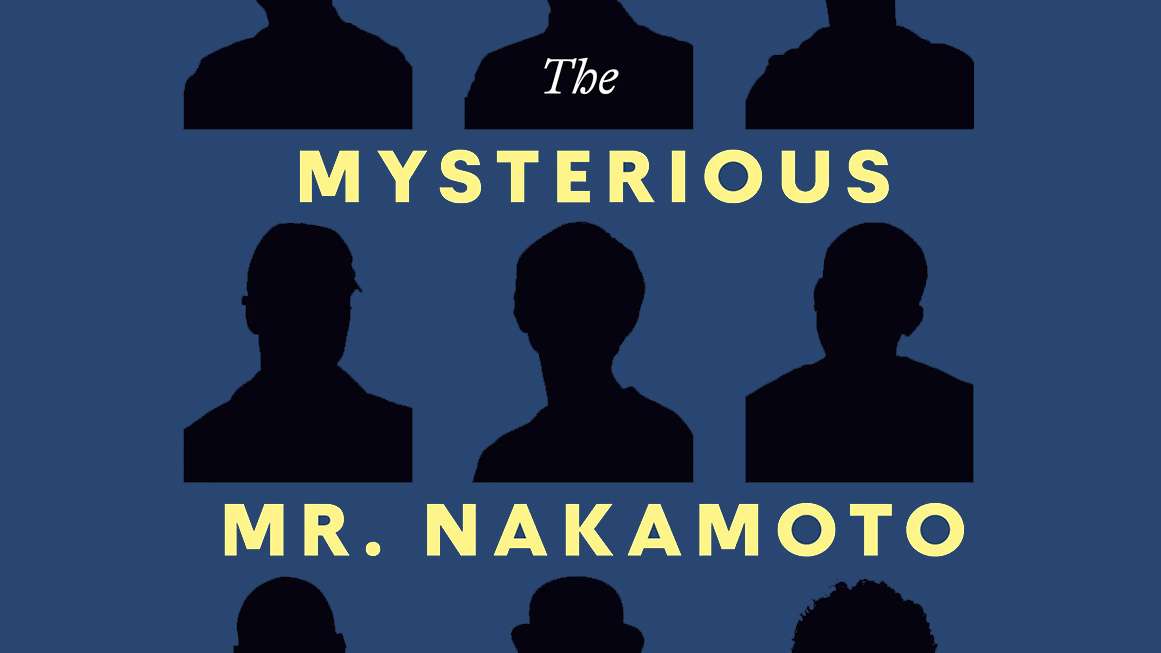
President Donald Trump has condemned the District of Columbia as a crime-ridden hellhole. He’s warned that “caravans of mass youth rampage through city streets,” and that the district’s murder rate is higher than “the worst places on Earth.” More than 2,200 National Guard troops are now roving the streets of the nation’s capital, at a cost of more than $1 million per day.
In truth, violent crime in D.C. is at a 30-year low, and Trump’s real goal is to suppress resistance. Trump’s occupation of D.C. is a blatant power grab that is prelude to a nationwide authoritarian sweep of blue cities. So far, he’s threatened Chicago, Baltimore, and New Orleans with the prospect of troops in the streets.
Legal Affairs Editor Garrett Epps spoke with Contributing Editor James Fallows about the damage a long-term federal occupation could wreak on D.C.’s economy and culture. On the other hand, says Fallows, the deployment of troops has awakened resistance among D.C. residents. “There’s a sense of D.C. patriotism that I have never seen before in my decades of off-and-on living here—of people, black and white, rich and very poor in different wards of the city,” he said. “The spirit of D.C. is more self-conscious and unified than I have ever seen it before in my life.”
This transcript has been edited for length and clarity.
Subscribe: Apple Podcasts | Spotify | YouTube
Garrett Epps: Welcome, Jim. We’re glad you could join us. As someone ensconced in the Pacific Northwest, I have the impulse to say, like Claude Rains in Casablanca, “Unoccupied France welcomes you.” But I’m delighted to be in touch with someone broadcasting out of Radio Free D.C., who can talk to us about what’s going on. Update us on what life is like.
James Fallows: Life in D.C., where my wife Deb and I have returned after many months in my original home on the West Coast, is disorienting in the same way as everything else in American life right now. Ninety-five percent of the time, if you’re an older white person like me, you can think everything is fine.
There’s not many tourists here. The restaurants are uncrowded. You’re not being stopped by police. But in certain parts of the city, which is what Deb and I depicted a little more than a week ago in D.C., you see an atmosphere of real fear and terror. Videos are posted every day of people being snatched off their Door Dash scooters or just taken out of schools. We haven’t anything like a firefighter being seized, as I know you have in the Pacific Northwest, but it’s that bifurcated existence. It’s completely normal—unless you look where it’s not normal.
Garrett Epps: Have you seen any interactions with occupying forces that gave you pause?
James Fallows: Only incidentally, when Deb and I have been driving around town through parts of town where there either are retail establishments or there’s a large Latino population, we’ve caught glimpses of what looked like a suspicious number of strange vehicles parked there.
One time we drove down MacArthur Avenue in Northwest D.C. and heard somebody yelling out of a store, “Stop, stop, you can’t do this, this is unfair.” We have not seen a direct confrontation, but the feeling and the pall of it is everywhere.
Garrett Epps: As you pass these armed soldiers, do you feel safe? These are armed men with somewhat spotty training for running a city. Do you feel safer than you did or do you feel safe at all?
James Fallows: Obviously the answer is no. This is crazy. It’s performative. But I am also a Boomer era, well-educated white guy. And so when I have talked with these National Guard soldiers, they’ve been polite. “What can I do for you, sir? And let me tell you about my hometown in South Carolina.”
What was the name of the movie that came out a year or two ago about the guards at Auschwitz and the family living right next door to the camp—The Zone of Interest.
There is a lot of that in the quality of D.C. right now. Most of the times, if you don’t look, it is perfectly normal. The weather is this idyllic late summer, early fall weather in D.C., which one recalls from September of 2001, when the skies are blue, the air is crisp. The weather is balmy in the ‘70s and ‘80s.
It seems like the most pleasant place in the world, and it can be if you stay out of the places where it is not. If you don’t go to that part of the town, you think, well, these National Guard guys, they’re mulching trees on the National Mall. They’re picking up trash. They’re raking and not using leaf blowers. They’re keeping D.C. safe and proper.
So it is performative. It is horrifying. It is cynical. But it makes no direct impact on me.
Garrett Epps: Do you have any sense of what the Guardsmen’s attitude toward the District is? Do you think these guardsmen from South Carolina or wherever really understand the community that they’re policing?
Jim Fallows: Of course not. The ones we talked with have all been from cities one fifth the size of D.C.—small cities in South Carolina or West Virginia or whatever. They also seem to be more aware than you would think of the cynical nature of their duty there.
We asked them what they were doing, and it’s very difficult to explain how bored most of these people look. They would just cluster in groups of three or four. When they were on break, we would see a hundred of them lined up at the hot dog stand.
They are, I would guess, in their 20s or early 30s. Of the people we talk with, 90 percent of them are men and 100 percent of them are white.
Not a single one of them said, “We’re here to protect the nation’s capital. We’re here doing the president’s bidding. We’re here to be extra eyes.” They said, “This is our job.” And they looked like high schoolers or a little older on detention or on playground. None of them seemed to have their hearts in it. None of them seem to think this was worth it.
When you see ICE videos, you think these people are itching for action. That is not the sense I got from the people we have met.
Garrett Epps: You and Deb studied the growth of cities and towns and why cities prosper and why they don’t.
Mayor Bowser, I think just yesterday announced that she’s willing to have the Trump occupying forces in town indefinitely, meaning the troops may be there for months. First of all, do you think this is the end of home rule?
Jim Fallows: I think that it is a demonstration of the limits of home rule. For those who don’t know, back in the 1960s, D.C. acquired many of the attributes of a self-governing place, although any law that passes the D.C. City Council has the potential to be vetoed by yahoos in Congress.
I would say two things. One is that there’s a sense of D.C. patriotism that I have never seen before in my decades of off-and-on living here—of people, black and white, rich and very poor in different wards of the city. From Ward 3 where I live, which is the richest and the whitest, to Ward 8, which is the poorest and blackest, there’s a sense that people in D.C. are being screwed.
There are more of us than people in either Wyoming or Vermont. We pay a higher per capita federal income tax than people of any state. And there’s been this humiliating demonstration that we don’t have a governor, and we don’t have any power.
Mayor Bowser must have made the calculation that it’s better to go along than to stand up, unlike J.B. Pritzker and Gavin Newsom, because Pritzker and Newsom run states and Mayor Bowser does not. She doesn’t even command the National Guard, as Pritzker and Gavin Newsom do.
So I think the spirit of D.C. is more self-conscious and unified than I have ever seen it before in my life. But D.C. also seems weaker than any other time in its home rule era.
Garrett Epps: Now that you’ve got the prospect of months or even a year or two of occupation ahead, what’s the long-term effect of that going to be on D.C. as a city? I lived there for 12 years and found it immensely livable and pleasant and fun, and obviously I would like to see the city thrive. How do you think that this affects that?
James Fallows: I first moved to D.C. to work for the Washington Monthly magazine, as you know very well, back in the early 1970s, and in virtually every measurable way, D.C. is a much better and more livable city than it was 40 or 50 years ago.
But the layoffs and attacks on institutional America that have gone on the last six months have hit D.C. harder than any other city. And now we have the National Guard. So it is sort of one on top of the other.
I am a longtime homeowner in D.C., and I have no intention of selling my house in the foreseeable future. It’s way more valuable than it was when I bought it, but it’s much less valuable than it was six months ago. Just because of the deflation, only a certain class of people are attracted to move to D.C. right now.
Garrett Epps: Well, on that note, I would just like to open the mic to you for anything you want the world to know about what’s going on. What message do you have to those of us in the free world?
James Fallows: So in the first half of this year, I was in the free world. I was back in California, my original homeland, seeing one of our sons and his family. So I know what it is like in that part of the world.
Until recently in my long life, I’d always been able to say that I’ve seen worse because I lived through 1968, which was arguably the most violent year in American history since the Civil War. Assassinations were the main driving influence. Many of us know directly what it was like to have universities controlled by police and shut down. I no longer say that. I think this is the most dangerous year for democracy since 1861 or 1863 or 1865.
The servile nature of the GOP legislature and the Supreme Court has meant that every day brings some new transgression and horror. The follow-up message is that for those of us who are not Supreme Court justices or Republican legislators should resist every day in every way we can. Put sand in the gears, make it slower, make everybody else know that we are not alone, and that there are more of us than there are of them.
We’ve seen on the other side the way that protests over abortion policy over the last 50 years have changed politics. The influence of the Tea Party movement was built largely on public protests.
There’s a chance to use those tools. I think people need to find every way they can every day to represent and stand up.
The post Fear and Loathing in Washington D.C. appeared first on Washington Monthly.


 1 month ago
29
1 month ago
29 










 Bengali (Bangladesh) ·
Bengali (Bangladesh) ·  English (United States) ·
English (United States) ·